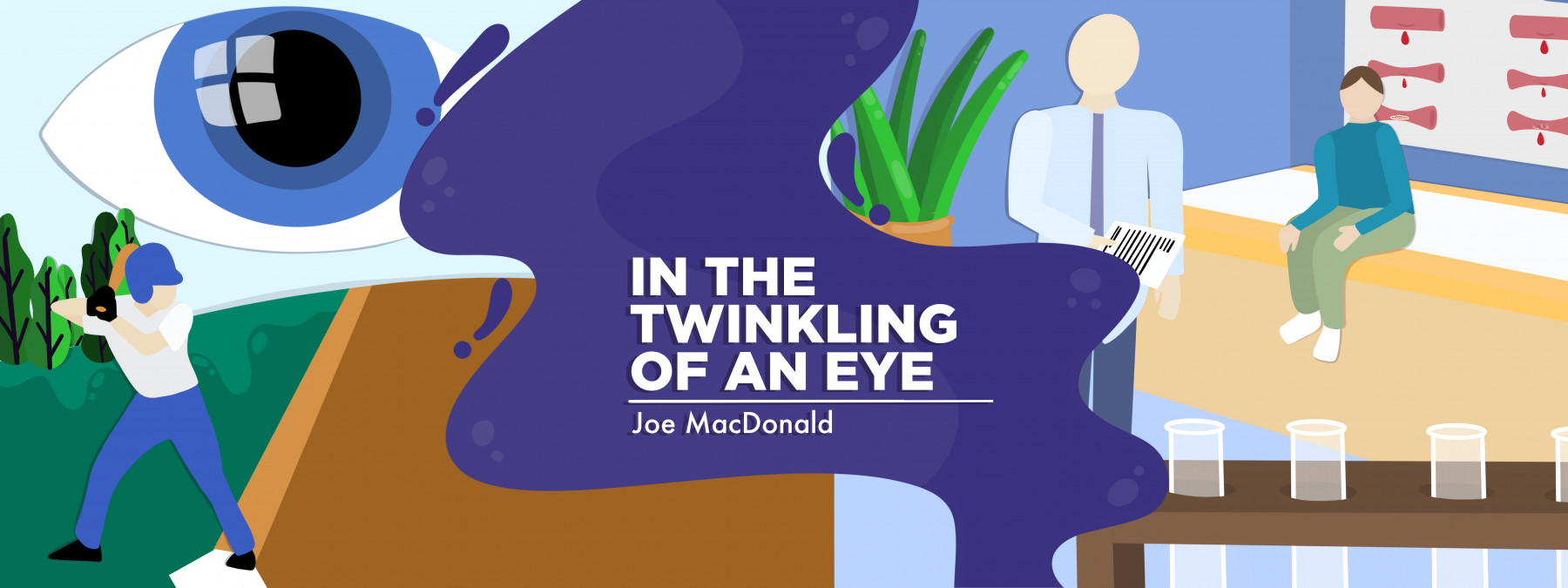Some reasons I don’t define my sons by calling them hemophiliacs
The oft-used term fails to acknowledge the breadth of their identities
Written by |

As a parent of two sons, Julian and Caeleb, who have hemophilia, I’ve developed a pet peeve when discussing their bleeding disorders with others. My wife, Cazandra, and I avoid labeling them as hemophiliacs. Instead, we prefer to say that our sons have hemophilia.
This seemingly minor language change has significant implications for how they perceive themselves and how others view them. It’s a lesson in the power of language to shape perception, prompting us to be more mindful of our words and actions.
It means a lot more to me than just word choice, however. Referring to my sons as hemophiliacs suggests that they’re somehow strange. It’s like labeling one group “flawed” and the other “typical.” Defining my sons by their genetic disorder takes away from all of their unique abilities. Their true identity is about much more than just their medical condition.
When discussing my sons with others, I don’t say, “Julian, the hemophiliac, is a singer.” Instead, I share, “My son Julian sings beautifully and struggles with hemophilia.” While this shift may not sound like much of a difference, each sentence expresses a drastically different idea. The first phrase, “Julian, the hemophiliac …,” implies that my son is a bleeding disorder. The second phrase, “My son … struggles with hemophilia,” describes him with several characteristics, one of which is his struggle with a bleeding disorder.
One may ask, “Why does the terminology make such a difference?”
Their disease is only part of them
My response includes a subtle shift in how Julian and Caeleb perceive themselves as they relate to people, places, and activities worldwide. My primary mission is to raise and develop young men who have a secure foundation when they face the world. They have a multitude of incredible qualities even as they manage hemophilia. Their abilities and strengths inspire hope and optimism.
Another reason I don’t call my sons hemophiliacs is because we can treat bleeding disorders. Undercutting their sense of self with such a minimizing label fails to acknowledge that hemophilia treatment offers possibilities that seemed impossible to those in past generations, who suffered from complications related to their chronic disorder. Treatment advancements offer hope and encouragement.
Having a bleeding disorder instead of being a bleeding disorder is an important distinction I’ve tried to reinforce. The term “hemophiliac” doesn’t acknowledge that my sons are more than a one-size-fits-all prototype.
People who manage bleeding disorders, for instance, have different ways of treating their symptoms. Julian and Caeleb both have severe factor VIII deficiency, yet they’re like day and night. Julian never experienced frequent hospitalizations, spontaneous joint bleeds, or multiple port-a-caths, while Caeleb developed an allergy to factor VIII products, an infrequent complication that, as near as his doctors and I can tell, has only two reported cases.
Their struggles vary and cannot fit under one umbrella. Emphasizing their individuality fosters respect and understanding, which promotes a more inclusive and empathetic society.
When asked how I identify my sons, I say, “First and foremost, they are children of God, made in the divine’s perfect image, who struggle with hemophilia.” In my family, the most essential definition of self must defer to the creator of life, and that’s undoubtedly not hemophilia. I don’t deny that their bleeding disorder is an integral part of their identity, but it’s not the whole.
My sons are not cookie-cutter guys. They’re unique, each created to find his path and his way to describe himself. Once they discover their approach, they’ll shape their lives with their own distinctive labels. This approach empowers them to define themselves beyond their medical condition and inspires others to do the same.
Note: Hemophilia News Today is strictly a news and information website about the disease. It does not provide medical advice, diagnosis, or treatment. This content is not intended to be a substitute for professional medical advice, diagnosis, or treatment. Always seek the advice of your physician or another qualified health provider with any questions you may have regarding a medical condition. Never disregard professional medical advice or delay in seeking it because of something you have read on this website. The opinions expressed in this column are not those of Hemophilia News Today or its parent company, Bionews, and are intended to spark discussion about issues pertaining to hemophilia.




Orry B
Although I appreciate the sentiment of reframing the language to speak a different narrative, I personally have found that accepting my difference brought me more peace than at any point in my youth when I was trying to blend in. I am a hemophiliac and I am rare and my story can pave a path for those coming after me. I find hemophiliac almost as a term of endearment because it’s uncommon enough that I wear it as a badge. Not in a prideful way, but as someone that can tell other hemophiliacs life is good.